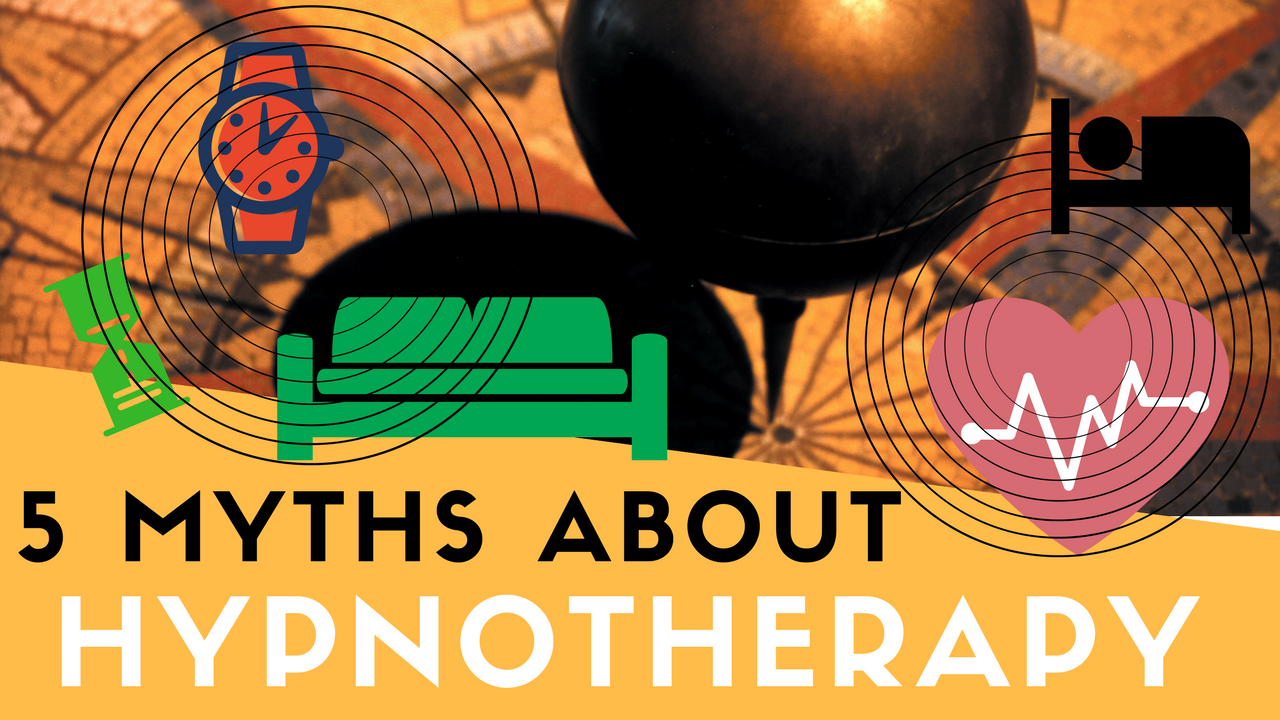
What is hypnotherapy?
Whenever someone hears that I’m training to become a certified hypnotherapist, the reactions are mixed. Most people are curious and want to know more, but a lot of people come to the conversation with unfortunate misconceptions thanks in part to Hollywood and our culture. Hypnotherapy is an incredibly simple but extremely effective healing and relaxation tool with tons of proven benefits.“While every client is different, a study by Dr. Alfred Barrios found that, on average, 600 sessions of psychotherapy resulted in 38 percent improvement for clients, but just 6 sessions of hypnotherapy resulted in 93 percent improvement. Six sessions is the average hypnotherapy treatment for any topic.”- CBS’s The Doctors
My teacher calls hypnotherapy “meditation with a goal”, which is why it is excellent for typeA people (hellooo Steemit population!). Hypnotherapy is still guided relaxation, but because it is goal oriented, it doesn’t feel like you are “doing nothing” as you might with traditional meditation modalities.
With that in mind, here are 5 myths and corresponding truths about hypnotherapy…
TRUTH: While both may use similar techniques, hypnotherapy is therapeutic by nature and is very different from stage hypnosis. In both hypnotherapy and stage hypnosis, the client is brought into a super relaxed state, and by consenting to this, the client is subconsciously consenting to any other suggestions that the hypnotist is providing. In hypnotherapy, the client gets the benefit of high quality suggestions and visualizations that will help them heal and achieve their goal(s). In stage hypnosis, the client just ends up doing wacky things for the purposes of entertainment, albeit while they’re relaxed. The people who consent to going on a stage have given a hypnotist permission to put them in trance and have them perform for a crowd. That “client” still feels relaxed and simply “goes with the flow.”
TRUTH: Hypnosis itself is not sleep - when you are in hypnosis you do not fall asleep nor lose consciousness. That being said, hypnotherapy can be extremely effective for enhancing your sleep or getting rid of insomnia and other sleep disorders. When you’re in hypnosis, you become very relaxed - in fact, the phase RIGHT before you fall asleep is a deep hypnotic state. (Have you ever half fallen asleep and then woken back up and been slightly disoriented because you felt so suddenly relaxed? That’s going into hypnosis.) The state where you’re in hypnosis is when you are relaxed. Because you are very relaxed while in trance, you can think more clearly AND you are more open to suggestions that benefit and improve your life.
TRUTH: In spite of any false Hollywood depictions, it is impossible to get “stuck” in trance. (I’m thinking the movie Get Out. That isn’t what actually happens in hypnotherapy.) No one has ever gotten stuck in trance in history. Instead, hypnosis is a lot like becoming absorbed in an excellent story, maybe in a book or movie. No matter how engrossed you may be in a storytelling experience, it is always possible for you to stop watching/reading and stand up/leave whenever you choose. You can emerge and exit out of trance whenever you want. But think about this: since hypnosis is a super relaxing and pleasant sensation, you may instead choose to sit back and chill out for just a little bit more even after your session or recording has finished!
TRUTH: Remember - despite depictions from Hollywood movies, it is totally implausible and not possible to control another person while using hypnosis. As a person doing hypnosis, you won’t ever be saying anything you wouldn’t say when you’re in a complete waking state. When you’re enjoying hypnotic trance, your ethics, morals, and values are all staying the same. You won’t be doing anything against your will. You can even reject or accept suggestions that aren’t beneficial to you because hypnosis is not someone else controlling you! By contrast, you are working to harness the power of YOUR own mind through hypnosis/hypnotherapy!
TRUTH: A person having a “weak” or “strong” mind has zero to do with hypnosis or hypnotizability! As we have said above: hypnosis is definitely not about willpower. Instead, it has to do with an individual’s “suggestibility”. As it turns out, people who are highly imaginative and/or intelligent tend to be the some of the more suggestible clients. That being said, anyone can be hypnotized; suggestibility is just a factor that a certified therapist has to take into account when helping clients into states of relaxed trance.
So what do you learn in hypnotherapy training? Well, among many other psychological training modalities, certified therapists are taught taught to leverage certain language patterns in the induction process. Hypnotherapists are also educated in linguistic and human tendencies in order to boost your experience and make hypnosis very beneficial and customized to you. Hypnosis recordings are an excellent segue into experiencing hypnosis itself, and as it turns out, I made one especially for you today to try out on DSound!
Here is the link: Get Happy: Hypnotherapy for your energy! Quick 10 minute recording

Congratulations @vron! You have completed some achievement on Steemit and have been rewarded with new badge(s) :
Click on any badge to view your own Board of Honor on SteemitBoard.
To support your work, I also upvoted your post!
For more information about SteemitBoard, click here
If you no longer want to receive notifications, reply to this comment with the word
STOPDownvoting a post can decrease pending rewards and make it less visible. Common reasons:
Submit
Congratulations @vron! You received a personal award!
Click here to view your Board
Do not miss the last post from @steemitboard:
Downvoting a post can decrease pending rewards and make it less visible. Common reasons:
Submit
Congratulations @vron! You received a personal award!
You can view your badges on your Steem Board and compare to others on the Steem Ranking
Vote for @Steemitboard as a witness to get one more award and increased upvotes!
Downvoting a post can decrease pending rewards and make it less visible. Common reasons:
Submit